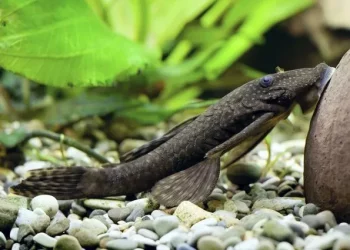When it comes to keeping fish, bettas, also known as Siamese fighting fish, are among the most popular choices for aquarists around the world. Known for their vibrant colors, flowing fins, and spirited personalities, these aquatic creatures bring a unique charm to home aquariums. One question that often arises among betta owners is, do bettas recognize their owners? This inquiry opens a fascinating discussion about fish behavior, cognition, and the bonds that can form between humans and their finned friends.
Understanding Betta Behavior
To address the question of recognition, it’s essential first to understand betta behavior. Bettas are highly territorial and exhibit a range of behaviors that indicate their emotional states. These behaviors can include flaring their fins, building bubble nests, and showing signs of stress or excitement. Their personalities can vary significantly, with some bettas being more outgoing and curious, while others are shy and reserved.
The Science of Recognition
When discussing whether bettas can recognize their owners, we must delve into the realm of animal cognition. Recognition, in general, involves an animal’s ability to identify and remember certain individuals or stimuli. While fish brains are structured differently than those of mammals, research indicates that fish possess more cognitive abilities than previously thought.
Studies on Fish Cognition
Several studies have explored the cognitive capabilities of fish. One notable experiment involved goldfish, showing that they could be trained to associate specific sounds with feeding times. This suggests that fish have a memory capacity and can learn from their environments. Furthermore, a study conducted by scientists at the University of Queensland in Australia found that fish can recognize and differentiate between human faces. While these studies did not focus specifically on bettas, they provide a framework for understanding the potential cognitive abilities of fish in general.
Betta Responses to Human Interaction
Many betta owners report that their fish exhibit specific behaviors when they are near or interacting with them. For example, bettas may swim excitedly to the front of their tanks when they see their owners, especially during feeding times. This behavior could be interpreted as recognition, as the fish associate their owners with food and care.
Additionally, bettas often display curiosity toward their owners. They may follow fingers as they move along the tank glass or react to sounds or movements outside the aquarium. These interactions hint at a level of awareness that goes beyond mere instinctual behavior.
Environmental Factors
The environment in which a betta lives can significantly impact its behavior and interactions with humans. Bettas thrive in tanks that are well-maintained, with appropriate water conditions, temperature, and hiding spots. A healthy and stimulating environment encourages bettas to be more active and responsive. Owners who spend time engaging with their bettas, such as through feeding routines or tank maintenance, may foster a bond that enhances recognition and interaction.
Building a Bond with Your Betta
While the science behind fish recognition is still evolving, many betta owners have anecdotal experiences that suggest a bond can be formed. Here are some tips on how to build a stronger relationship with your betta:
1. Regular Feeding Schedule
Establishing a consistent feeding routine helps your betta associate you with positive experiences. Over time, your fish may learn to recognize the sound of the food container or the sight of you approaching the tank.
2. Interactive Play
Bettas can engage in playful interactions. Consider using a small mirror to allow your betta to flare its fins, or use a laser pointer to encourage it to chase the light. These activities can stimulate your fish and encourage a more active and curious demeanor.
3. Observation and Interaction
Spend time observing your betta. Notice its behavior, swimming patterns, and how it reacts to your presence. As you become more attuned to your fish’s personality, you may find that it starts to respond to you more actively.
4. Quality Tank Environment
Ensure your betta’s environment is enriched with plants, hiding spots, and a clean tank. A healthy and stimulating environment contributes to the overall well-being of your fish, making it more likely to interact with you.
Emotional Intelligence in Fish
One of the most intriguing aspects of this discussion is the emotional intelligence of fish. While bettas are often viewed merely as colorful decorations, they are capable of experiencing stress, excitement, and even comfort. Understanding the emotional lives of fish can further enrich the owner-fish relationship.
Signs of Stress and Contentment
Bettas display various signs of stress, including dull colors, erratic swimming, and hiding. Conversely, a healthy betta typically shows vibrant colors, active swimming, and an interest in its surroundings. Paying attention to these signs can help owners respond to their fish’s needs, reinforcing a bond of trust.
The Role of Interaction
The more time you spend interacting with your betta, the more comfortable it will become. If your betta consistently swims to the front of the tank when you approach, it likely indicates recognition and comfort in your presence. This connection can develop into a mutual appreciation where the fish enjoys your company, and you enjoy watching its vibrant personality.
Personal Stories: Bettas and Their Owners
The emotional connection between bettas and their owners can manifest in many personal stories. Many enthusiasts have shared their experiences of forming bonds with their bettas. Here are a few noteworthy accounts:
A Healing Companion
One owner recounted how their betta, named “Blue,” became a source of comfort during a difficult time. The owner found solace in watching Blue swim and play in the tank. Over time, Blue began to recognize the owner’s presence, swimming excitedly to the front of the tank during interactions. This connection provided a sense of companionship that helped the owner through a challenging period.
A Curious Betta
Another owner shared a story about their betta, “Finley,” who displayed remarkable curiosity. Every time the owner approached the tank, Finley would swim to the front, observing closely. The owner even trained Finley to jump for food, which became a fun daily ritual. This interaction not only entertained the owner but also created a stronger bond with Finley.
Cultural Significance of Bettas
Bettas hold significant cultural importance, particularly in Southeast Asia, where they are often kept for their beauty and competitive spirit. The betta fish fighting tradition is a centuries-old practice that showcases these fish’s prowess and vibrant colors. In this context, bettas are not only pets but also symbols of resilience and beauty. Understanding this cultural significance adds another layer to the connection between bettas and their owners.
Common Misconceptions
While many people adore bettas, there are also misconceptions about their care and behavior. Here are a few common misunderstandings:
1. Bettas Are Solitary Creatures
While it’s true that bettas are territorial, this doesn’t mean they cannot interact positively with humans. Bettas can thrive in social environments with proper management and care.
2. Bettas Don’t Feel Emotion
Many assume fish lack emotional depth, but as we’ve explored, bettas can exhibit stress and excitement. Recognizing their emotional states is essential for providing the best care.
3. Bettas Are Easy to Care For
While bettas are often marketed as low-maintenance pets, they require proper care, including regular water changes, the right temperature, and a balanced diet. Misunderstanding their needs can lead to health issues.
The Importance of Observation
A key takeaway for any betta owner is the importance of observation. By spending time watching your fish, you can learn about its behavior, preferences, and personality traits. This knowledge not only enhances your enjoyment but also helps ensure your betta remains healthy and happy.
Learning to Read Your Betta
Understanding the subtle cues your betta displays can improve your relationship. For instance, if your betta hides frequently, it might indicate stress or discomfort. Conversely, a betta that actively engages with you is likely content. Learning to interpret these behaviors creates a deeper connection between you and your pet.
Conclusion
In conclusion, while the question of whether bettas can recognize their owners may still invite scientific scrutiny, the evidence suggests that these fish possess cognitive abilities that allow for some level of recognition and bonding. Bettas can exhibit behaviors that indicate familiarity and comfort, leading many owners to believe in the existence of a connection.
Creating an enriching environment, establishing regular interactions, and paying attention to your betta’s behavior can significantly enhance your relationship with these vibrant creatures. Whether through shared moments at feeding time or playful interactions, the bond you form with your betta is as unique as the individual fish itself.
Ultimately, the relationship between a betta and its owner transcends mere observation; it is about fostering an environment of mutual respect and care. So, the next time you approach your betta’s tank, remember that you are not just feeding a fish—you are nurturing a connection that can be deeply fulfilling for both you and your aquatic companion. In the world of pet keeping, the bonds we form, no matter how unconventional, enrich our lives in ways that often go beyond words.
Related Topics:























